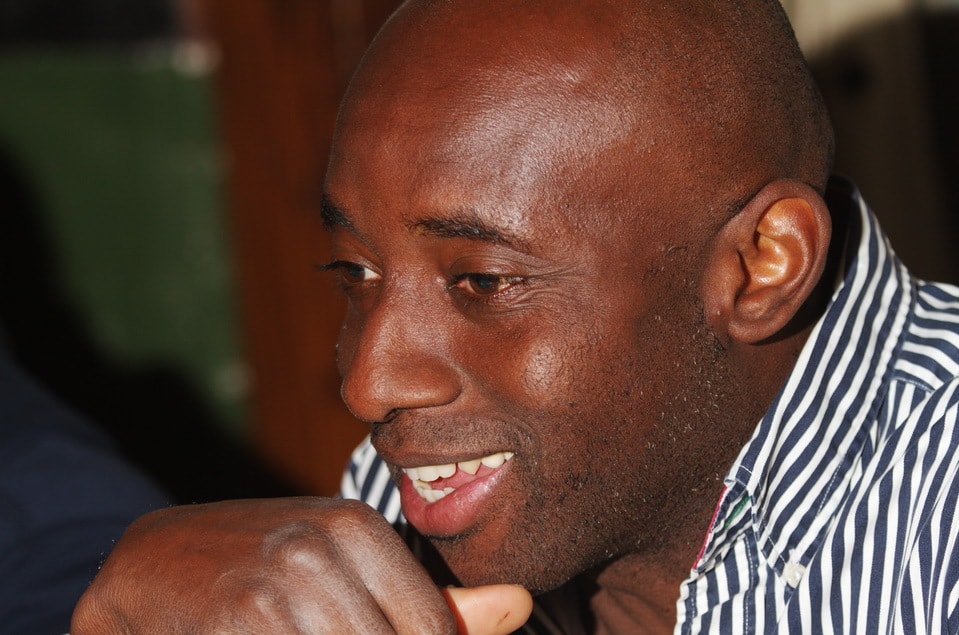Women’s rights have progressed steadily since the 20th century, at different levels in different parts of the world. In the West, women are seen to be equal to men – technically. But is that really the case in our day-to-day lives? What is stopping us from breaking the glass ceiling?
When I lived in Oman, there was a running joke that in Omani households, the women are the men of the house. It was clear that in social situations women held sway over their husbands, and that women were held in a very high regard. When I told this to my friends in the West, they would be shocked, due to their impressions about women’s rights in the Middle East.
I recently did an internship for 2 months at PricewaterhouseCoopers (PwC) in Oman, where my family and I have lived for many years. Coming from the West, where the general notion seems to be that Arab/Muslim women are oppressed by men, it was quite surprising to witness what I did at the workplace – even after being immersed in Omani culture for so long.
How culture dictates corporate dynamics
In the PwC Muscat office, most of the younger workers were Omani, and the split between men and women was about 60-40. Although there were fewer women, their presence was felt at all times. In meetings they were eloquent and influential, while during the rest of the workday they were driven and focused. But women in the workplace in the West are like that, too. So what was it that had me taken aback?
In the photo: women in a meeting. Photo credit: Pexels/Eric Bailey
The differentiating factor was that the Omani men at PwC had so much respect for the women. They never spoke over them, they listened to them, and they saw them as a true asset to the workplace. When out to lunch with my colleagues, I asked the women if they felt like equals with the men at work. I heard some very interesting answers.
Before I had even finished uttering my question, the Omani women at once said “of course we are equals, we are as capable and smart as the men.” One British colleague said she did not feel as though there was an equal playing field, and a couple of Indian colleagues agreed. I was confused; these women were all working in the same office, why did they have such different sentiments about the same topic?
Related article: “WOMEN WORLDWIDE ASSERT THEIR POWER THROUGH NECESSITY”
Intrigued by what I was witnessing, I asked a friend of mine at PwC in Boston the same question, keeping the firm the same to control for different firm cultures. She told me that she and her female Western colleagues constantly felt that they weren’t as “good” as their male counterparts, especially as they were promoted to higher positions in the firm. She said that men often spoke over her without realizing, adding that this was the case across all firms and industries, some more than others. Hearing this made me think that maybe gender equality in the corporate world is really an issue of culture, and made me further think that maybe our Western culture is not as conducive to gender equality as we might think it is.
The importance of self-worth in success
Homaira Kabir is a positive psychologist whose area of expertise is self-worth. She is also one of the co-founders of Positive Diversity, a firm that aims to empower women in the corporate world. She firmly believes that Western media has instilled a culture of perfection to which most women fall prey. Men definitely face these pressures as well, but not to the same extent. Media is constantly telling women how our bodies should look, how we should behave, what kind of life we should be leading, to name a few. According to Homaira, there are two main kinds of pressures that women face in the business world – internal and external.
“Internal pressures are the ones that limit women from taking risks – these are based on societal expectations and deeper underlying beliefs. External pressures are the ones the outside world is putting on us – for example actual rules not allowing women to work, women not being allowed to perform certain tasks.” In the Western world, there have been great efforts to reduce, and in most cases eliminate the external pressures. In fact, men and women have access to the same opportunities, and firms welcome diversity. But it is the internal pressures that are preventing the playing field from being level.
 In photo: Walking to work. Photo Credit: Pexels/Gili Benita
In photo: Walking to work. Photo Credit: Pexels/Gili Benita
Women’s lives revolve around what society expect of us. Homaira calls it a “double bind” — we should be strong, but not too strong. We should be driven, but not too driven. We should have a career, but also run a household. Women that are strong in their convictions and strive to get ahead are deemed ruthless, while a man doing the same thing is just doing his job. But instead of challenging this “double bind” and trying to break these norms, women tend to abide by them and maintain the status quo.
For a full mindmap behind this article with articles, videos, and documents see #GenderDivide
Internal conflicts
Due to these internal limitations, women are not confident in their actions. Homaira says that “the women who challenge these norms often feel that they are thus losing some of their womanhood, and therefore don’t have the confidence to always say what they think, or ask for higher salaries.” Confidence comes from taking risks, and finding success from those risks. Men take risks all the time, and gain self-assurance from the triumphs that they bring. But since these internal pressures inhibit women from taking the same risks, they don’t often have the same history of success that gives them the confidence they need to cultivate self-worth in the corporate world.
Women need to have the courage to take risks so that they can prove to themselves and others what they are capable of.
So here is where culture comes in, and the reason behind Omani women feeling equal to men while other women didn’t. In Arab culture, while there are definitely external pressures on women that are slowly diminishing in some countries, there is no culture of female perfection. Media doesn’t tell women to look or act a certain “ideal” way, and there is much less of a “double bind” societal norm. In Oman especially, the government highly promotes the education of women. Therefore there are virtually no internal pressures on women, and they do what they want without feeling guilty, or “less” of a woman. In the opportunities that these women do get, they take risks and challenges and come out triumphant in many of them, further building both their confidence, and the belief that there is not difference in their capabilities compared to men. The other women from cultures were from places that had implanted internal pressures into them, and prevented them from having the confidence to thrive.
In the West, we fortunately have broken down the external barriers. But there is a reason we still have a ceiling, and that it’s made of glass. We, women are the ones who need to break down our own internal barriers to find true equality. Our culture of perfection makes it difficult, but we need to have faith in our abilities and take risks to prove them to the world, and more importantly, ourselves. We have the power to do great things, but we need to break away from our core, fabricated obstructions to be able to truly harness it.
Recommended reading: “DEVELOPMENT’S GENDER GAP”
_ _








